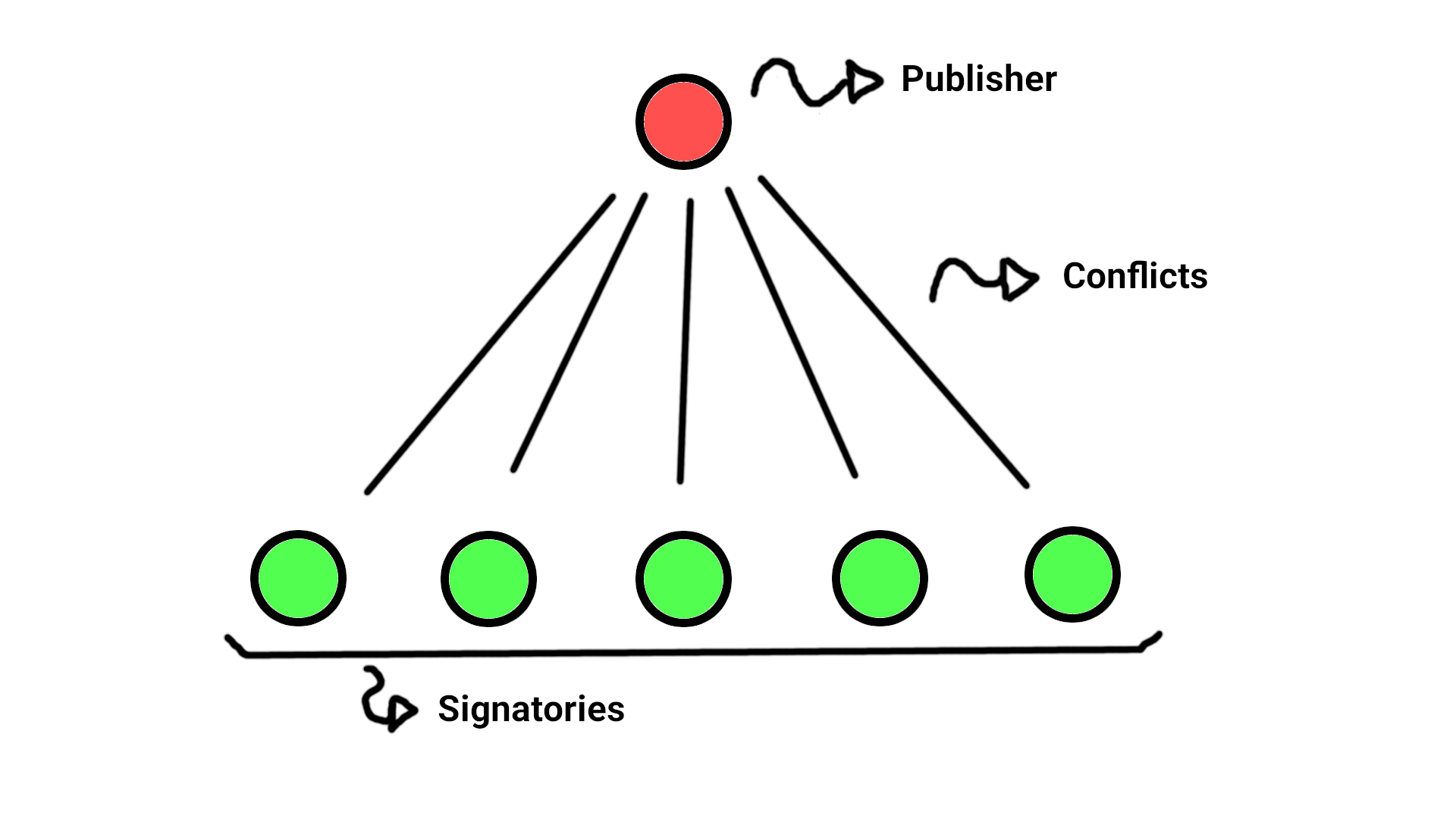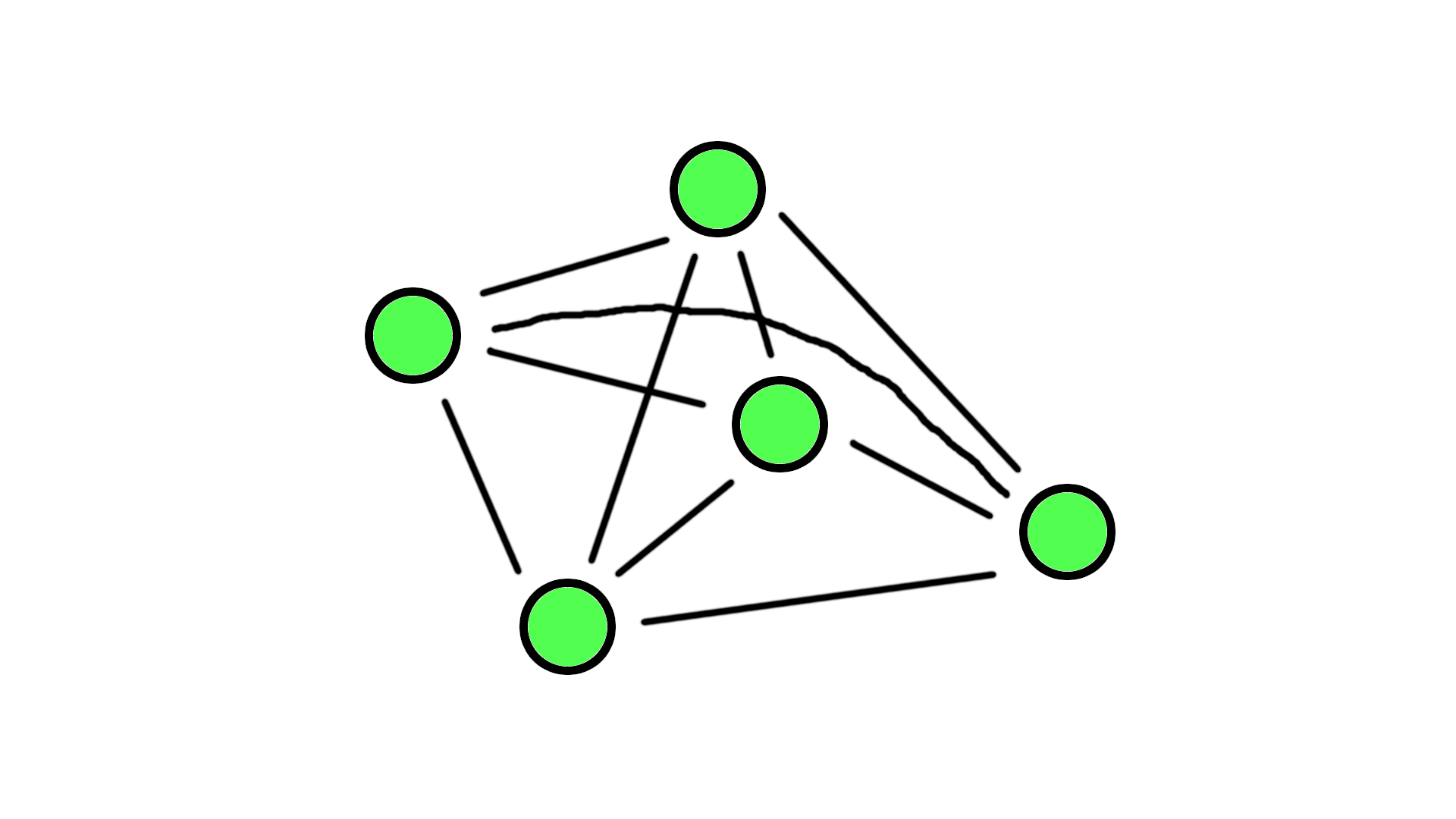Athena is a Cardano-based project that aims to be a trustworthy, reward-driven platform for goods and service exchanges by allowing users to create and sign digital contracts. These contracts are written in a special format which avoids ambiguity and misinterpretation by not relying completely on natural language.
An account is a script containing information about the user and also containing his SIG tokens, which are tokens that represent someone's signature. The script constraints are defined in such a way that if a script contains someone's SIG token, you can be sure that this person agreed with the script, or, in our specific case, agreed with the contract.
Accounts serve as a central place where all platform fees can be collected (SIG tokens are only minted and transfered, validating the account, if the entrance fee is paid). Additionally, all actions in the platform, such as contract creation and signing, are validated only by consuming an account script, which, if validated, will transfer one SIG token to the contract.
The account data is defined as follows:
data AccountDatum = AccountDatum
{ adCAS :: Integer,
adContracts :: [AssetClass],
adSigSymbol :: CurrencySymbol,
adTickets :: PlutusMap.Map TokenName CurrencySymbol
}
deriving (Prelude.Show, Generic, FromJSON, ToJSON, Prelude.Eq)adCAS is the user's credit assessment system (CAS) score. A higher score should
indicate that the user is more trustworthy. At the way it is defined right now,
though, it has almost no purpouse, since an attacker could create a number of
accounts and sign false contracts with them as participants, artificially
increasing his score.
Though this would mean that the attacker would have to repeatidily pay entrance fees, with the platform growth there could be a market incentive for people to buy "trustworthy" accounts, making those attacks profitable. To avoid this, our project will make use of a proof of uniqueness mechanism, in which users that have CAS scores will need to prove somehow that they have an unique account.
adContracts holds a list of asset classes representing each NFT identifying
a contract the user is part of. This is important so that we can later search
for our contract UTxOs and also so that we can allow or not contracts to affect
our account datum by making sure they are in our list.
adSigSymbol is currency symbol of the SIG token.
adTickets is a map, matching ticket names to their currency symbols. The
account should only validate if at least one ticket is present in the output.
This is done so that the heavy validation logic occurs outside the script in the
minting policy, making the validator much lighter and the transaction size
smaller.
Each action is handled by a minting policy, in this case an account is created if the SIG minting policy mints an equivalent of 100 SIG tokens and transfers them to the account validator, creating a new UTxO, which will be used to handle all platform transactions by this user.
In order to create an account the following must be met:
The transaction must be signed by the public key hash of the token name that is being minted.
An exact amount of 100 tokens must be minted, all of which should have the token name corresponding to a representation of the signer's public key hash.
The account should receive the entrance fee, which will then be collected by the parties responsible for mantaining the platform.
The datum must contain an intial CAS score of 60,000, an empty list of contracts, the currency symbol from the minting policy we are using and the tickets received in the create account parameters.
A contract is a script that holds each signatory collateral and handles conflicts between any two parties. Signing a contract means tranfering a SIG token to a contract validator.
The contract data is defined as follows:
data ContractDatum = ContractDatum
{ cdRelationType :: RelationType,
cdPrivacyType :: PrivacyType,
cdPublisher :: PubKeyHash,
cdCollateral :: Value, -- Must be positive
cdTerms :: PlutusMap.Map Trigger Action,
cdJudges :: [Address],
cdAccusations :: [Accusation],
cdRoles :: Integer, -- The maximum role index
cdRoleMap :: PlutusMap.Map PubKeyHash Integer
}
deriving (Prelude.Show, Generic, FromJSON, ToJSON, Prelude.Eq)Contracts can differ in terms of how parties are treated and how they interact with each other. They can be of two types:
Even though there may be multiple parties (20 users, for example), these parties don't interact with each other (they cannot accuse each other), but they can all raise disputes against the contract creator. This model is useful for freelancers, for example, whose clients (which may be many) don't care about each other, but only care if the service is delivered or not.
Distributed contracts are different. Although each party may have a different role, which may alter it's rules, all parties are able to raise disputes against each other. This type is ideal for clubs, for example, whose members all could be involved in a distute with each other.
RelationType is defined as:
data RelationType = RT_Convergent | RT_Distributed
deriving (Prelude.Show, Generic, FromJSON, ToJSON, Prelude.Eq)
PlutusTx.unstableMakeIsData ''RelationType
PlutusTx.makeLift ''RelationTypeIn addition, contracts can also differ in who is allowed to sign them. Private and public contracts only differential is that private contracts require "invites", while public ones do not.
PrivacyType is defined as:
data PrivacyType = PT_Public | PT_Private
deriving (Prelude.Show, Generic, FromJSON, ToJSON, Prelude.Eq)
PlutusTx.unstableMakeIsData ''PrivacyType
PlutusTx.makeLift ''PrivacyTypePublisher is the public key hash from the person who created the contract.
Collateral is the value a user must store inside the contract in order to be part of it. It may be partially or fully lost if a user does not follow the terms.
Terms are a series of triggers that, based on the inputs provided by the judges, may trigger different actions.
Triggers, if compared to conventional contracts, are the terms. Triggers make use of the inputs to form conditions that will trigger certain actions.
It is defined as follows:
data Trigger = TrigEqualsInt IntegerInput Integer
| TrigEqualsBool BoolInput Bool
| TrigGreaterThan IntegerInput Integer
| TrigLessThan IntegerInput Integer
| TrigNot Trigger
| TrigAnd Trigger Trigger
| TrigOr Trigger Trigger
deriving (Prelude.Show, Generic, FromJSON, ToJSON, Prelude.Eq)
PlutusTx.unstableMakeIsData ''Trigger
PlutusTx.makeLift ''TriggerInputs are variables that will be used by the logic condition in order to trigger certain actions. They are questions that connect the real world (which is messy and subjective) to the blockchain. Because some questions are specific to some roles, the input also receives a list of roles to which they apply exclusively.
Inputs are defined as follows:
data BoolInput = BoolInput
{ biRoles :: [Integer],
biQuestion :: BuiltinByteString
}
deriving (Prelude.Show, Generic, FromJSON, ToJSON, Prelude.Eq)
PlutusTx.unstableMakeIsData ''BoolInput
PlutusTx.makeLift ''BoolInput
data IntegerInput = IntegerInput
{ iiRoles :: [Integer],
iiQuestion :: BuiltinByteString
}
deriving (Prelude.Show, Generic, FromJSON, ToJSON, Prelude.Eq)
PlutusTx.unstableMakeIsData ''IntegerInput
PlutusTx.makeLift ''IntegerInputActions are consequences that must happen in order to resolve a dispute. Actions can be on-chain or off-chain. The former are those which can be enforced by the contract it self. For instance, lowering the user CAS score or transfering part of his collateral.
The latter are those that need to be enforced by the interested parties in real life. A token is created with the hash of a JSON that contains all information regarding the case, including the actions that must be done in order to punish the guilty user. This token can, then, be used by the injured part in order to ask for real-life punishments.
Judges are addresses that will be responsible for determining the inputs, which will be used to trigger dispute resolution actions. These addresses may be from human users or from scripts, meaning someone could, for example, replicate the Kleros court system in Cardano and use it's address as a judge.
TODO: What should happen if a judge "disappears"? Some contracts may be present for years TODO: What if we have five disputes at the same time? Should the same judge mediate all of them? TODO: What if a judge never answers? Who sets the deadline? Who should replace him? TODO: What if there are no more judges available?
An accusation is a data type the holds the accuser and accused public key hashes, as well as the time the accusation was sent and the judge that should mediate it. The contract must store all disputes that have not been resolved yet.
Roles are integers that represent different, well... roles. This means that some users may be affected by some rules, while other are not. The contract stores the maximum index, as well as, a map, matching each participant to a role.
Ticket: create-contract
The minting policy should mint a new token "create-contract" and transfer it to the user account only if the following criteria are met:
The newly created contract datum must be valid, meaning it should:
- Have the publisher corresponding to the account calling this transaction
- Have all inputs with roles less or equal
cdRoles - Have no accusations
- Collateral must be positive
- If the contract is private, have a role map with at least the publisher role, otherwise, the role map must only have the publisher role.
The newly created contract should receive the collateral value and the judge price and one SIG token.
The account datum must be equal, except for the addition of the contract to the list.
Account value must be equal the original value minus one SIG token.
Must be signed by the account owner.
Ticket: sign-contract
The minting policy should mint a new token "sign-contract" and transfer it to the user account and the contract account only if the following criteria are met:
If the contract is private, the user must be in the role map.
If the contract is private, the contract datum must be equal. Otherwise, should only change the role map, with an additional role for the added user.
The newly created contract should receive the collateral value and the judge price and one SIG token.
The account datum must be equal, except for the addition of the contract to the list.
Account value must be equal the original value minus one SIG token.
Must be signed by the account owner.
Ticket: raise-dispute
The minting policy should mint a new token "raise-dispute" and transfer it to the contract account only if the following criteria are met:
All parties (accuser or accused) must be registered in the role map. If the contract is convergent, one of the parties must be the publisher.
The contract datum must be equal, but with an additional accusation.
The contract value must be equal.
Must be signed by the accuser.
Ticket: solve-dispute
The minting policy should mint a new token "solve-dispute" and transfer it to the contract account only if the following criteria are met:
If there were on-chain actions, such as platform expulsion, CAS decrease, collateral consumption, they should be executed. If there were off-chain actions, a token should be minted with the hash of the JSON indicating the resolution info. This JSON should be stored by the winning party and he should be able to require some real life punishment by displaying the minted token and the JSON.
The contract datum must be equal, but the accusation resolved should be removed.
The contract value must be the same minus the collaterals that were consumed and the SIG tokens from those expelled.
The account datums must be equal, except for the removal of the contract from the list, if it is an account from an expelled person or for the decrease in the CAS score if such an actions was triggered.
Account values must be equal the original value plus one SIG token if it was an account from an expelled user.
TODO: If a user loses collateral, wouldn't he need to be automatically expelled, since he doesn't have sufficent collateral anymore? This doesn't look ideal.
Must be signed by the judge responsible for this accusation.

